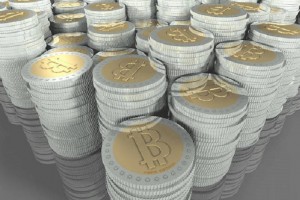Latest Posts
-
Finance 0
Selling Into Junk Strength
On this day of lifetime highs on almost every important index in the world, I’m selling short high-yield bonds. Here are a couple of ETFs, each of which have vaulted over the past week to their respective topping patterns. Here’s high-yield fund JNK: Here’s the second, HYG: ...On November 21, 2017 / By Kurt Osterberg -
Finance 0
The Global Domination Of Big Tech
Video Length: 00:01:12 The big four — Apple, Amazon, Facebook, and Google — have literally changed the face of the world economy, and are collectively responsible for creating a combined market capitalization equivalent to the GDP of India with a population the size of the Lower East Side of Manhattan. This, according to Scott Galloway, professor of marketing at NYU Stern, founder of L2 Inc. and author of The Four: The Hidden DNA of Apple, Amazon, Facebook, and Google, means we need to watch these four — and other potential disruptors — very closely, as they point the way toward understanding the economy as a whole and where innovati...On November 21, 2017 / By Kurt Osterberg -
Finance 0
AUD/USD Carves Bullish Outside-Day As RBA Strikes Hawkish Tone
The Australian dollar outperforms its major counterparts, with AUD/USD at risk for a larger rebound as the Reserve Bank of Australia (RBA) gradually alters the outlook for monetary policy. A bullish engulfing appears to be taking shape in the aussie-dollar exchange rate as Governor Philip Lowewarns ‘that ‘it is more likely that the next move in interest rates will be up, rather than down,’ but it seems as though the central bank will carry the record-low cash rate into 2018 as officials are ‘prepared to be patient.’ With that said, the RBA may continue to tame expectations for an imminent rate-hike as ‘the subdued outlook fo...On November 21, 2017 / By Kurt Osterberg -
Finance 0
Goldman’s 2018 S&P Outlook Is Here: ‘Irrational’ Versus ‘Rational’ Exuberance
Apparently, everyone is going to adopt on an oxymoron when describing their outlook for equities in 2018. As noted last week, there’s something not quite right about the term “rational exuberance.” “Exuberance” implies at least a little bit of irrationality in most cases and there is most assuredly some irrationality inherent in being “exuberant” about an asset class that is stretched to historical extremes on all kinds of standard metrics. But here’s the thing: assuming the ubiquitous “Goldilocks” narrative of decent global growth but still subdued inflation continues to be a reasonably accurate description of economic re...On November 21, 2017 / By Kurt Osterberg -
Finance 0
USD/JPY Back To 112.00?
Despite rising equity markets, steady yields, positive economic data and the prospect of a Fed rate hike in December USD/JPY has done nothing but slide lower over the past few weeks. What gives? The problem for the pair is that the market remains skeptical about any further rate hikes in 2018. For now, the Fed funds futures curve is decidedly flat for 2018, with most traders concerned that the Fed will remain on the sidelines far into 2018 amidst the absence of any inflationary pressures. A few weeks ago we noted that USD/JPY has decoupled from many of its correlations including those with bonds and equities. That generally suggests furthe...On November 21, 2017 / By Kurt Osterberg -
Finance 0
Why Are People Buying Bonds With Negative Yields?
Bloomberg reports an astonishing bit of interest rate news from France. Mark Gilbert reports, French utility Veolia Environnement SA is one of a handful of low-rated borrowers — assessed at BBB or lower by Standard & Poor’s — with fixed-rate debt repayable in three years or longer that trades at yields below zero in euros. Fleckenstein Capital LLC put it this way, Sacré BBB-leu! Yesterday a Parisian BBB-rated company (i.e., quasi junk) issued $500 million in three-year notes yielding -0.026%. We have been peppered with so many absurdities, nothing seems absurd anymore, although you can be sure when folks look back at this ...On November 21, 2017 / By Kurt Osterberg -
Finance 0
With Crude Speculators ‘All In’, OPEC Event Looks Risky
The phrase ‘buy the rumor, sell the news’ is overused on Wall Street for a reason. Prior to significant events, prices tend to rise on rumors and then drop sharply following a highly anticipated event. Looking at WTI, the last OPEC meeting (May 25, 2017) is a great example of this pattern. Rumors of deeper OPEC cuts ultimately unfounded Prior to the event, crude oil speculators drove WTI prices above $50. At the time, some speculated that OPEC may extend and deepen supply cuts simultaneously. While OPEC met Wall Street’s consensus expectations by extending supply cuts to the first quarter of 2018, prices fell nonetheless. On the day ...On November 21, 2017 / By Kurt Osterberg -
Finance 0
SocGen: Asian Equities Are So Awesome, A China Minsky Moment Is “Manageable”
If we’re going to discuss Asian equities in the context of “awesome”, we should begin with Tencent. Tencent, which has more than doubled this year, drove Asian stocks higher during Tuesday’s trading session. Trading on the main board of the Hong Kong Stock Exchange hit a 28-month high of HK$157 billion with one fifth of it in only two stocks – Tencent (HK$21.7 billion) and Ping An Insurance (HK$9.4 billion). It was hardly surprising that shares in Hong Kong Exchanges & Clearing also had a good day, rising 5.5%, the most in more than a year. Tencent’s 2.4% rise pushed it market cap. above the illustrious $500 billion market, g...On November 21, 2017 / By Kurt Osterberg -
Finance 0
Is Free Market Capitalism Bad Economics?
The “fatal flaw” of neoliberalism, which “denotes a preference for markets over government, economic incentives over cultural norms, and private entrepreneurship over collective action,” is that it simply is “bad economics,” according to a new Guardian article penned by Harvard economist Dani Rodrik. The one size fits all formula can be overly simplistic but that could be said for any economic philosophy. “Neoliberalism” Criticisms Most of Rodrik’s article is thoughtful and nuanced. His primary criticism of “neoliberalism,” is that, “its customary remedies – always more markets, always less government – are in f...On November 21, 2017 / By Kurt Osterberg -
Finance 0
Corporate Cash Mountain Grows Makes Apple World’s Largest Hedge Fund
According to an analysis by credit rating agency Moody’s, cash and liquid investments at US non-financial companies are poised to rise about 5% to $1.9 trillion at the end of 2017 — a new record. This cash pile is concentrated with five key holders, which together will own 35% (Apple will account for 15%) of the total, up from 32% at the end of 2016. Apple, Microsoft, Google parent Alphabet, Cisco Systems and Oracle are on track to hold a cumulative $679 billion in cash at the end of calendar 2017, up 16% year-on-year. The cash hoarding in the tech sector as a whole is expected to take the tech sector’s portion of total cash to 47...On November 21, 2017 / By Kurt Osterberg
Top Posts
-
 The Importance for Individuals to Use Sustainable Chemicals
The Importance for Individuals to Use Sustainable Chemicals
-
 Small Businesses: Finding the Right Candidate for the Job
Small Businesses: Finding the Right Candidate for the Job
-
 How to Write the Perfect Thank You Letter After Your Job Interview
How to Write the Perfect Thank You Letter After Your Job Interview
-
 3 Best Large-Cap Blend Mutual Funds For Enticing Returns
3 Best Large-Cap Blend Mutual Funds For Enticing Returns
-
 China suspected in massive breach of federal personnel data
China suspected in massive breach of federal personnel data














